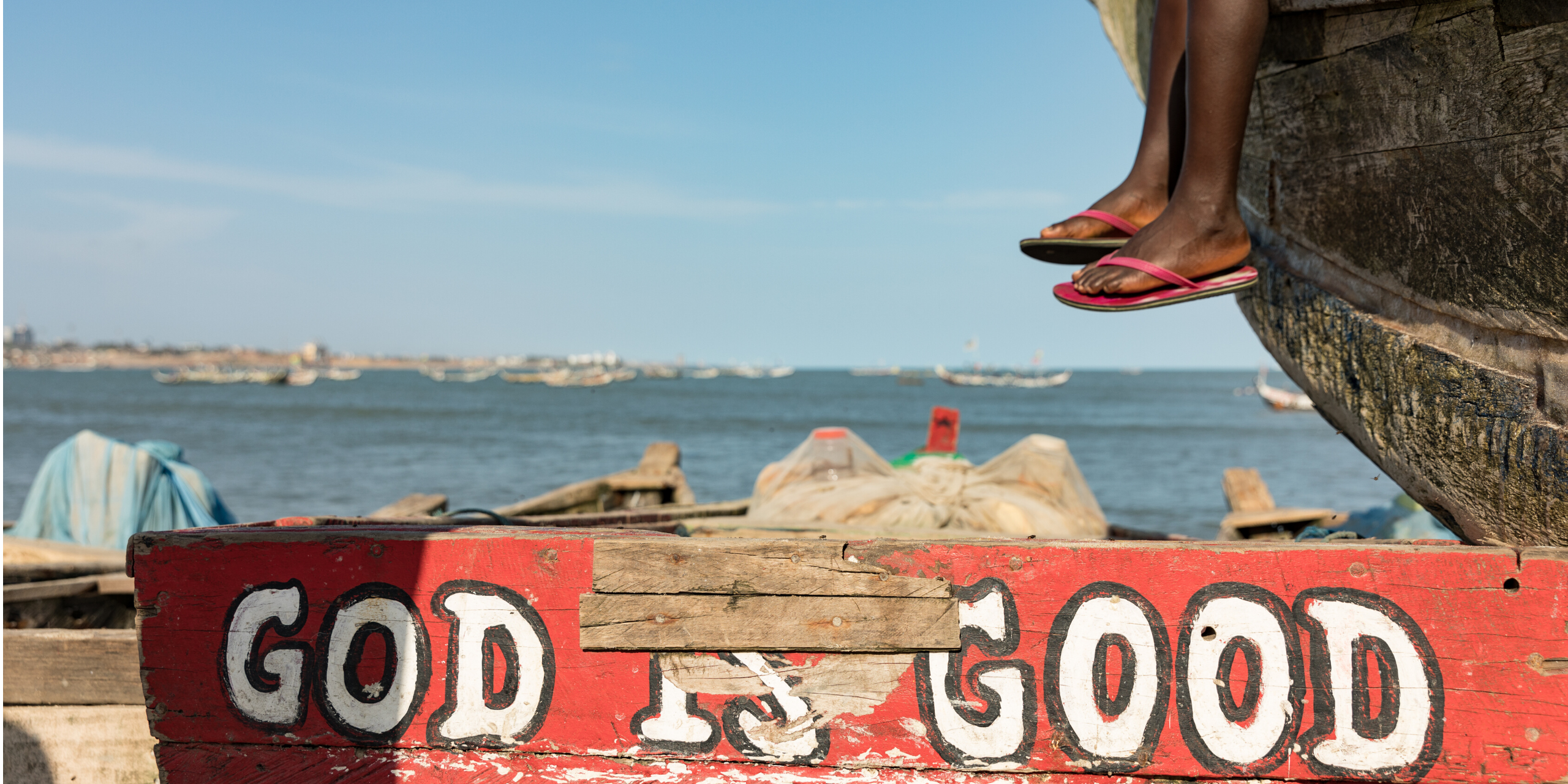GHANAIAN CULTURE AT A GLANCE
Ghana is a very peaceful and welcoming country. People are incredibly hospitable, and you will often hear the expression “Akwaaba” – which translates to “you’re welcome” when you encounter locals.
Ghana as a nation is extremely proud – and so they should be! Not only is Ghana known for being the first sub-Saharan African country to gain independence from European colonisation, it is also a country renowned for its incredibly rich and diverse culture. Everything in Ghana is colourful and vibrant, from the fabric and the beads, to the traditional festivals and dances.
Nearly 29 million people make up the Republic of Ghana and there are more than 70 different ethnic groups, each with their own unique customs and traditions.
Birth and death are marked by distinctive celebrations and ceremonies. For births, the naming ceremony is an extremely important event. As for death, elaborate and drawn-out funerals are commonplace throughout Ghana.
Culturally, family is a major source of identity for many Ghanaians. Loyalty to and responsibility for family is especially important, to the point that family obligations often take precedence over everything else.
Ghanaian society is hierarchical and respect often correlates to a persons’ age and experience, as well as his or her wealth, status and position in society. Older people are viewed as wise and knowledgeable and are therefore granted much respect. The younger generation usually turn to their seniors and elders when it comes to making important decisions.
The pouring of libations is a routine event at occasions such as traditional marriage ceremonies, the birth of a child, funeral ceremonies; as well as at traditional festivals such as the enstoolment of Kings, Queens and Chiefs. A libation is the ritual pouring of either liquid (gin) or grains as an offering to the ancestors.
Ghana is a very religious country and evangelical prophets are widespread. Going to church every Sunday is a social event in itself. Ghanaians in general, tend to be superstitious and the belief in black magic belief is strong. Football is hugely popular in Ghana and can almost be considered a religion on its own!
Ghanaian society is generally very tolerant and respectful when it comes to differing religions and ethnic groups, which is one of the reasons why it continues being one of the most peaceful and stable countries in Africa.
Sex and sexuality are not generally openly discussed as they are considered taboo subjects for public discussion, though with increasing globalisation, this aspect of the culture may start to change in urban areas and major cities.
It is extremely important for Ghanaians to maintain dignity and honour, and to maintain a good reputation. A loss of honour is shared by the entire family, which makes Ghanaian culture very much a collective one.
Our top tips for experiencing Ghana’s culture right here in Accra:
- For a cultural experience right on your doorstep, take a walk down the bustling and vibrant Oxford Street in nearby Osu. Stop by the roadside stalls to check out local curios, clothing and more.
- For an overall feel for Ghanaian culture, visit the Centre for National Culture also known as the Art Centre, to browse local crafts, arts and masks.
- For a lively market experience, visit the chaotic and frenetic Makola market with its never-ending maze-like lanes and stalls selling everything from vegetables and fabric to wigs and Shea butter.
- For a glance of the city, take a drive past the Independence Arch, Black Star Gate, the Kwame Nkrumah Memorial and Osu Castle. You can also do a mini city tour by bike with Accra Cycle Tour, departing from The Shop Accra in Osu at 10 am for a 3-hour cycle, covering important sites such as James Town, the Art Centre, Osu castle and the Kwame Nkrumah Memorial Park. Call The Shop on 030 295 1958 for details on how to book.
- To enjoy music concerts and other cultural events, head to Alliance Francaise. Check out their website for news on upcoming events.
- For an immersion in one of Accra’s’ oldest fishing communities, make a trip to James Town. While you are there, check out the iconic lighthouse, stop by Brazil House; and then visit both Usher Fort and Fort James. Afterwards, grab a snack of kelewele at James Town Café, a cute hangout in the very heart of James Town.
- To take in some of Ghana’s’ top artists; visit the Artist Alliance Gallery in Labadi, which showcases art, local curios, Kente fabric, sculptures and beads.
- For lovers of the visual arts, be sure to pop by the Nubuke Foundation. The programming includes exhibitions, readings, talks, seminars, workshops and film screenings. Visit their website to find out more.
- For an absolutely amazing experience, delve into the fantastic world of palanquin fantasy coffins of the Ga-Adangbe people of the Greater Accra region at Paa Joe’s. This legendary man is considered the most important coffin artist of his generation. Find him in Pobiman, but call ahead first on 024 919 1004.
- For a taste of Accra’s burgeoning street art scene, catch the annual Chale Wote festival in August, which takes place on the streets of James Town.
- To learn about the Pan-African movement, visit the E.B Du Bois Centre in Cantonments to find out more about Du Bois himself, considered the founding father of Pan-Africanism.
- To appreciate the beauty and history of Ghanaian bead culture, visit TK Beads on the outskirts of Accra or Cedi Beads, as you head out towards Akosombo. You can also check out Sun Trade Beads in Asylum Down.
We highly recommend visiting the various regions in order to get an overall picture of Ghana, as each region is unique and has distinctive ethnic, geographic and demographic characteristics, customs and traditions. Make use of long weekends, public holidays and school vacations and start planning some road trips now!







